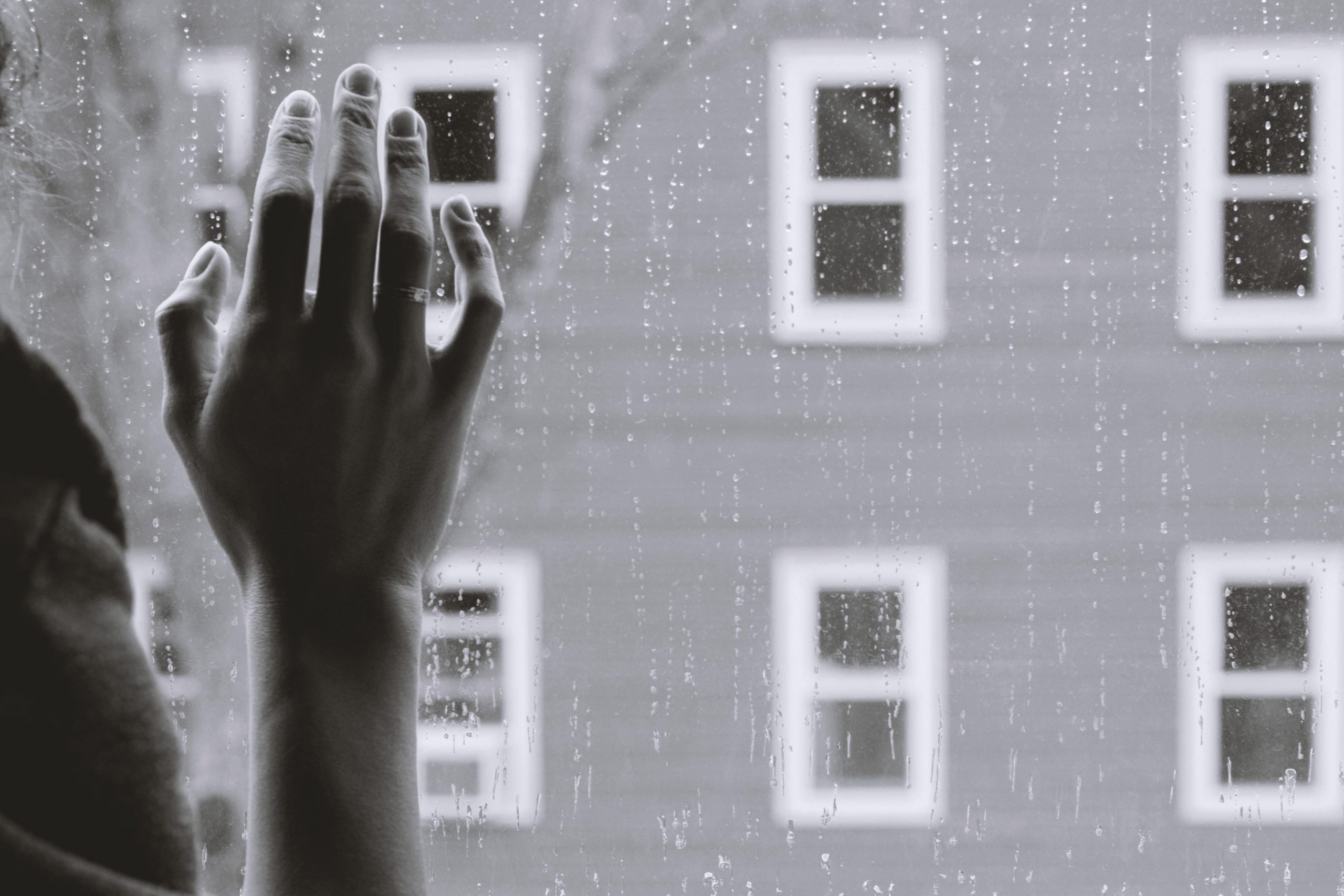Understanding the impact loneliness and isolation have on our well-being and learning the ways in which we can all overcome this issue.
With the previous and current social measures put in place by the government in their attempts to minimise the risk Covid-19 poses to our health, the concept of loneliness and isolation has become more widely understood and relatable between a wider range of people within this year. Unfortunately, for many members of society, the effects associated with loneliness and isolation have impacted them and their health years before the threat of Covid-19, whether it be related to age, race, culture or any other social measures.
I’ve taken some time out to study more on this social issue and in all honesty, it’s a shame that it has taken me this long, however, it is better late than never to share this information. With the great uncertainty surrounding the duration of minimal social contact, I really do believe this topic is vital at a time such as this. So, let’s get into it!
So what is loneliness and isolation?
Loneliness.
Firstly, it is important to understand that we can all experience loneliness, and because this feeling is personal, where we can experience it varies from one person to another. Loneliness is such a common feeling that researchers define it as something we experience more than once a week.
“Loneliness” itself does tell us a lot about the feeling. In simple terms, it’s all about feeling alone…loneliness is a state of mind. As a result of loneliness, one can feel empty, demotivated, alone, and unwanted. For those that experience loneliness, even where there is a want for human interaction, this state of mind can make it even more difficult to form connections with others, including family and friends. Age UK furthermore describes this as a gap between the “desired levels of social contact and the actual level of social contact”.
Isolation.
While loneliness is a subjective feeling, social isolation is the objective measure of social contact one has with others. This is more of a quantitative measure rather than something that is qualitative. While one may find comfort in having a small social circle, this can become a problem, and this can lead to social isolation.
Despite loneliness and isolation being different, they are two related and important concepts. Social isolation can evidently lead to loneliness, and the same is true for the other way round.
WHAT CAUSES LONELINESS AND ISOLATION?
The truth is, there are no definite causes of these two social issues, but there are many contributing factors. As an example of social isolation, during these unprecedented times, social contact has become increasingly lost as we are being encouraged to stay home in order to protect ourselves. For members of society, such as the elderly and young people, this is a huge contributing factor to their sense of isolation and the feeling of loneliness. Other factors include the death of a loved one, divorce, moving to a new location, retiring, and other such variables. Loneliness and isolation can also be a result of experiencing discrimination and stigma because of your race, gender or sexual orientation, the experience of sexual, physical or emotional abuse or belonging to minority groups and living without those from a similar background. It’s important to note that loneliness and isolation can also be a symptom of psychological disorders such as depression.
In relation to loneliness. internal factors such as low self-esteem can result in emotions that lead to this issue.
To summarise, many factors can lead to loneliness and isolation and it can be difficult to pinpoint where exactly the sense of these two social issues started, but understanding their origin is a key step in learning how to move away from such negativity.
THE IMPACT OF LONELINESS AND ISOLATION,
To grasp a better understanding as to why these factors are important, lets go through some statistics:
Loneliness may increase your risk of death by 26% (Holt-Lunstad, 2015).
Loneliness and isolation are associated with an increased risk of the development of coronary heart disease and stroke (Campaign to End Loneliness, 2018).
Half a million of the elderly go at least up to six days without seeing or speaking to anyone at all (Campaign to End Loneliness, 2018).
Between 3 April and 3 May 2020, 7.4 million adults reported their wellbeing had been affected by their feeling of loneliness (Office for National Statistics, 2020).
Since the beginning of lockdown, 18-24-year-olds are more likely to feel lonely. Before this period, one in six said they felt lonely. This has increased and young people are now three times more likely to experience loneliness (Mental Health Foundation, 2020)
As seen in the statistics above, loneliness and isolation play a key role in the downfall of our health. Feeling lonely is not a mental health problem however, our risk of mental health problems, such as depression and anxiety is greatly increased with long-term loneliness and isolation and this impact can be difficult to overcome. Here’s a great illustration of the relationship between mental health and loneliness:
(Mind, 2020)
HOW CAN WE OVERCOME LONELINESS AND SOCIAL ISOLATION?
Dealing with it individually.
Here are some great tips I found online.
- Identify the source of the issue.
- When do you experience loneliness? Is there a pattern?
- How long have you been experiencing loneliness?
- Do you feel most lonely around certain people? Why?
- Do you feel the need to do something when you are lonely?
Start to note down your thoughts and feelings.
Journaling your thoughts is great way to track your feelings and relieve stress. Personally, I did find committing to a journal difficult as I didn’t know how to start and how much I should write. The truth is, you can write as much as you feel like writing. To make it easier, you can use prompts such as “I feel lonely when…”. Prompts such as this get you straight to the point and can be a great way to point out the cause of your emotion.
Practice meditation.
Meditation is a good source of comfort. Researchers have suggested that it my ease our feelings associated with loneliness and depression. Meditation also enables you to explore your feelings and grasp a better understanding of them. So whether your meditation comes in the form of prayer, painting, cleaning, walking or through simple reflection, take some time out for yourself!
Consider talking to a therapist.
The thought of talking to a professional about how you feel can be daunting but these professionals are a great support as you try and discover more about yourself. Feeling lonely may also be an indication of an underlying mental health condition and so talking to a professional may be most beneficial when deciding the best course of action.
How to help others.
Start a conversation.
Taking time out of your day to chat to someone who you believe is socially isolated and/or lonely. Even if the chat is as simple as the weather, that social encounter can provide a positive experience to each an every one of us.
Offer practical help.
This can be really helpful in cases where someone may be in poor health, has suffered a bereavement, rarely leaves their home, is disabled, does not have a close social circle nearby or any other scenario that may limit their ability to do daily things.
Offering practical help can be in the form of doing their weekly shop, picking up prescriptions for them or helping them do the gardening. This reminds me of my dad who often helps to clear our next-door neighbours hedges every Sunday or remove the bushes in her garden, and every time she asks why he offers to do it for free, he always replies “we all have to look out for each other”. During these times, the two of them converse over almost anything. I think this mantra is something we all must live by to help make the world a little less lonely.
Share your time,
I do believe sharing time is a really good way of reducing social isolation and loneliness. This again, brings me back to my dad who would invite another next-door neighbour over, who happened to live alone and miles away from family. Even if it was for a cup of tea, you could see that he genuinely enjoyed his time away from home. Whatever you can do to share your time, I encourage you to do it.
If you or anyone around you is experiencing loneliness and isolation and/or believe this this impacting yours or their wellbeing, here are a few organisations you can get in touch with.
Mind: Promotes the views and needs of people with mental health disorders.
W: www.mind.org.uk T: 03001233393 (Monday to Friday, 9am-6pm).
CALM (Campaign Against Living Miserably): For men aged 15-35.
W: http://www.thecalmzone.net T: 0800585858 (Daily, 5pm-Midnight).
Samaritans: Confidential support for people experiencing feelings of distress and despair.
W: http://www.samaritans.org.uk T: 116123 (Free 24hr helpline).
Age UK: Services and support to inspire, enable and support the elderly.
W:http://www.ageuk.org.uk T: 08006781602 (8am-7pm every day of the year)







